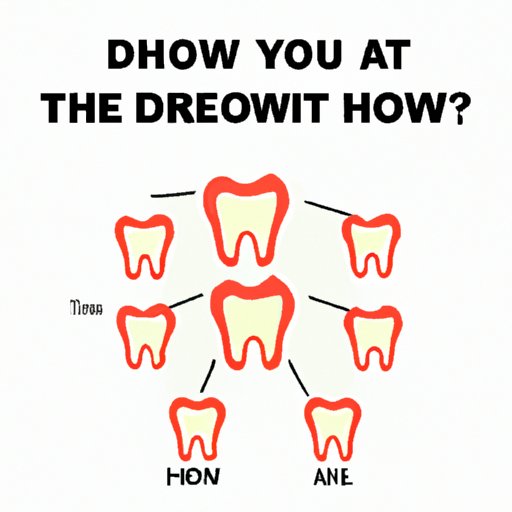
Introduction
Cavities are a common dental problem that affects people of all ages. They are caused by bacteria that produce acid, which ultimately erodes the tooth enamel and leads to tooth decay. If left untreated, cavities can cause severe pain and lead to tooth loss. The good news is that cavities can be prevented and treated effectively if detected early. In this article, we will explore the signs and symptoms of cavities, the importance of regular dental visits, prevention tips, and more to help you maintain good oral health.
Symptoms to Look Out For
The most common symptoms of cavities include toothache, sensitivity, visible holes or pits in teeth, and dark spots on teeth. If you experience any of these signs, it is essential to seek dental care immediately. Toothache is the most common symptom of cavities, and it often worsens when you eat or drink sugary or hot/cold foods. Tooth sensitivity can present as discomfort or pain when you consume hot, cold, or sweet foods. Pits or holes in teeth and dark spots on teeth are visible indications that cavities have already formed in your teeth.
The Importance of Regular Dental Visits
Regular dental visits are crucial in detecting cavities at an early stage. Your dentist will conduct a thorough oral examination, which includes checking for cavities. This helps to prevent the advancement of cavities and promotes good oral health. According to research, people who visit the dentist at least once a year are less likely to develop cavities than those who do not. Therefore, it is important to prioritize regular dental check-ups to prevent and detect cavities early on.
Tooth Sensitivity
Tooth sensitivity is a common problem associated with cavities. It is a sensation often described as discomfort or a sharp pain that occurs when you consume hot, cold, or sweet foods and drinks. As cavities progress, the sensation of sensitivity tends to become more frequent and severe. To manage tooth sensitivity associated with cavities, your dentist may address the underlying problem with dental treatments, such as filling the cavity, or recommend at-home remedies such as desensitizing toothpaste or using a fluoride mouthwash.
Food & Drink Damage
Many foods and drinks can increase the risk of developing cavities, such as sugary treats, pastries, and acidic drinks. Sugars and carbohydrates present in these foods interact with bacteria in your mouth, producing acid that erodes tooth enamel. To lessen the damage caused by these foods and drinks, it is recommended to rinse your mouth with water after consuming them. Moreover, using fluoride toothpaste can help to counteract the acid effects and protect your teeth from further decay.
Genetics and Cavities
Genetic factors can also increase your risk of developing cavities. Studies have shown that family history and genetics have a significant influence on oral health. For instance, if your parents had cavities when they were young, you are more likely to develop them. However, you can reduce your risk of cavities by practicing good oral hygiene and adopting a healthy diet. You can also seek advice from your dentist on the best oral care practices and other preventive measures that will help mitigate these risks.
Pain Management
If you experience pain associated with cavities, it is best to seek dental care as soon as possible to avoid severe pain and complications. Your dentist can recommend over-the-counter medications such as painkillers or natural remedies such as clove oil to help manage the pain. It is advisable not to leave pain symptoms untreated, as it can cause further deterioration of the cavity and harm your overall oral health.
Prevention Tips
Preventing cavities is essential to ensure good oral health. The following tips can help you to maintain healthy teeth and prevent cavities:
- Brush your teeth twice a day, with fluoride toothpaste for at least two minutes each time
- Floss your teeth daily to remove all the food particles that get stuck between your teeth
- Avoid using tobacco or smoking, which increases your risk of cavities and other oral health problems
- Eat a healthy diet rich in nutrients, such as calcium and vitamin D, which help to build strong and healthy teeth
- Drink enough water daily to help rinse your mouth and remove food particles that might be between your teeth.
By adopting good oral care practices, you can minimize your risk of developing cavities and improve your overall oral health.
Conclusion
Cavities can cause severe pain and lead to complications if left untreated. Therefore, it is crucial to pay attention to the signs and symptoms of cavities and practice good oral care habits. Regular dental visits can help detect cavities at an early stage, preventing them from worsening. Remember, prevention is key to maintaining good oral health. Incorporating preventive measures like reducing sugary foods and drinks, adopting good oral care habits like brushing and flossing regularly, and visiting your dentist regularly, will ensure prevention of cavities and overall better oral health.




